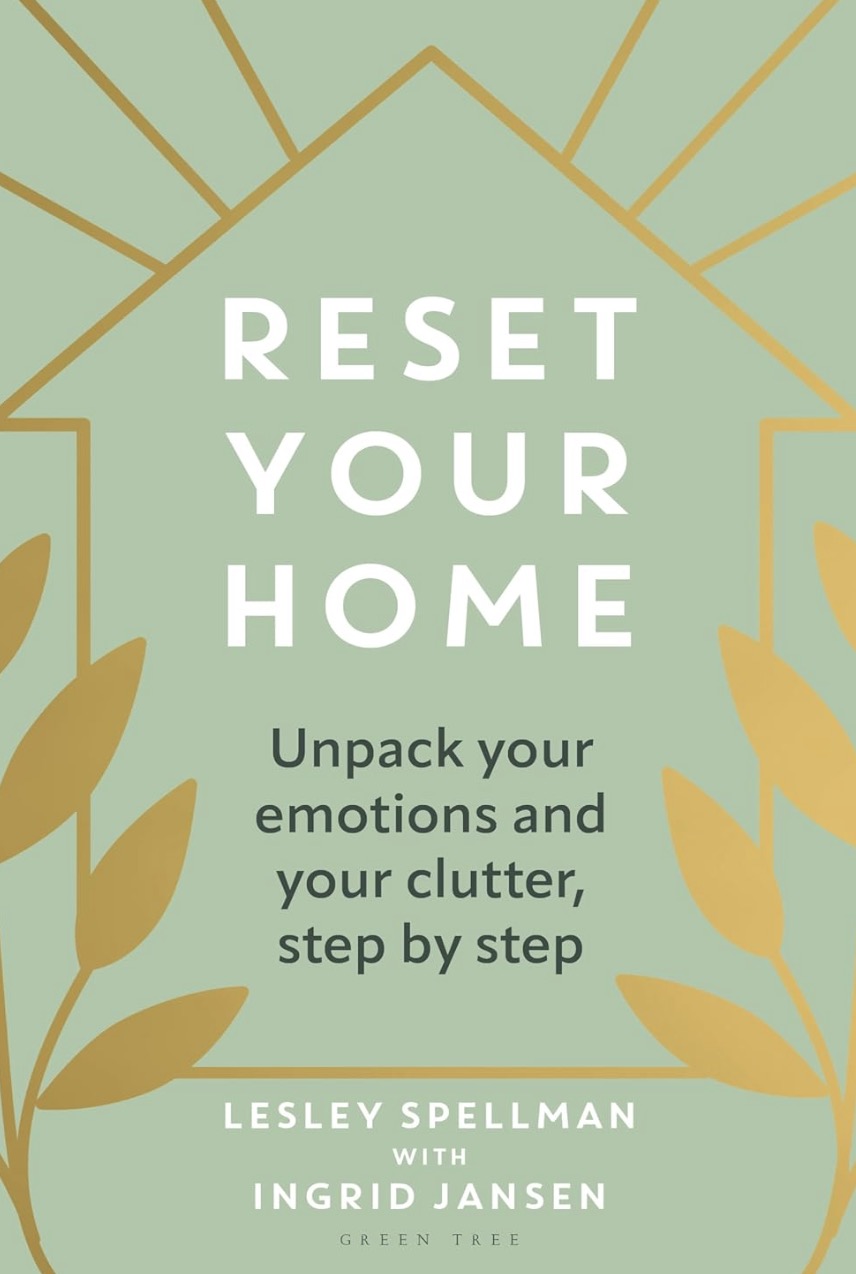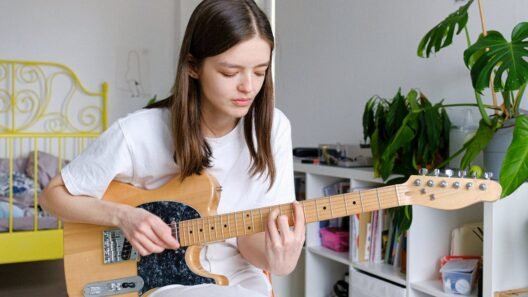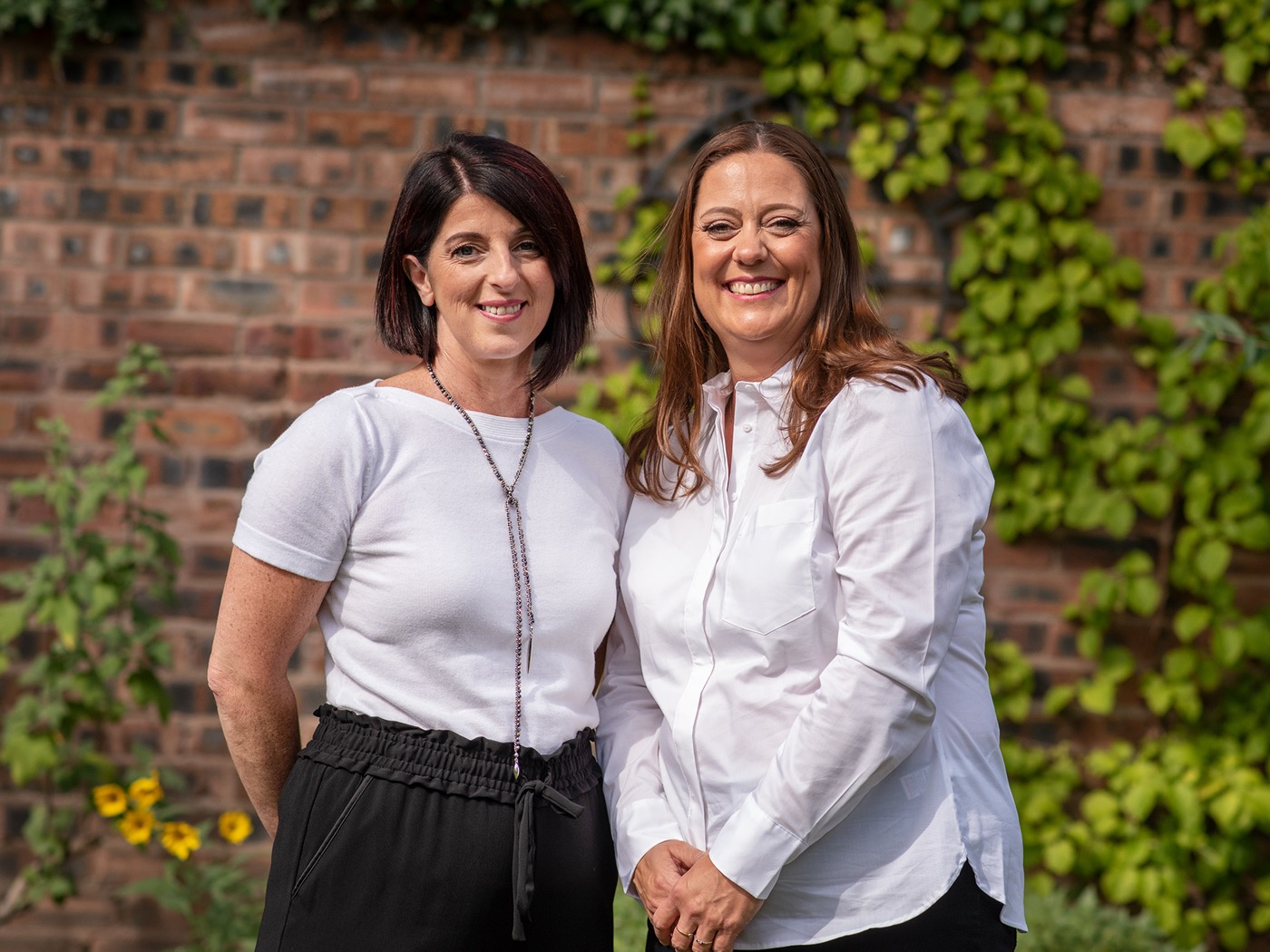Ingrid Jansen and Lesley Spellman the UK’s leading decluttering experts, have helped thousands transform their homes through The Declutter Hub, a top 1% podcast with over 2.5 million downloads and a thriving Facebook community of nearly 60,000 members. With nearly 30 years of combined experience, they tackle the emotional barriers behind clutter, guiding homeowners to create organised, stress-free spaces. Former leaders of the Association of Professional Declutterers and Organisers (APDO), they now bring their expertise to a global audience. Their new book, Reset Your Home, Unpack Your Emotions And Your Clutter, Step By Step , releases in February 2025, offering a practical, emotions-based approach to lasting home organisation. We recently had a chance to interview them, and here’s the full conversation.
London living often means tight spaces and even tighter storage. What are your best decluttering hacks for small flats with limited storage?
Go vertical – use shelves on walls, and opt for higher bookcases
If you have space on top of a wardrobe, use aesthetically complementary boxes and use the space for sentimental items or other things you don’t use that often.
The most important thing? Accept that the decluttering decisions you need to make are different to someone who lives in a four bedroom home.
Maximise storage by buying stackable square or rectangular storage and ensure you are using the entire height and width of any shelf (with a little manoeuvring space)
Your book introduces different “clutter personalities.” How can someone identify their clutter type, and why is it so important in the decluttering process?
If someone wants to determine their clutter personality, we actually have a quiz they can take. The reason it’s important is that so many people feel overwhelmed, downtrodden and as if they are the only one who struggles to take control of their home. To have your clutter personality described gives immediate validation and to know that they are not alone is comforting. That validation starts their decluttering journey on a positive footing.

Many Londoners move frequently due to rent increases and job changes. What’s the best way to declutter before a move without feeling overwhelmed?
Start early, take your time, move one room at a time and never leave your stuff to deal with at the other end. You don’t want to pay to move stuff you don’t need.
Try and have a good feel for what your new home looks like in terms of storage. Are you going to be losing or gaining any storage you have now?Factor that in and try and declutter accordingly.
Sentimental items can be the hardest to let go of. How can people balance emotional attachment with the need to create a clutter-free home?
Always choose quality over quantity. If you don’t get that warm fuzzy feeling when you come across something maybe it’s not as sentimental as you thought.
Determine whose memory it is. If you have inherited items from someone else, do you have any sentimental attachment? You don’t have to be the curator of someone else’s life. They had their memories and you’ll have yours.
Decluttering often feels like a massive project. What’s the secret to making it a manageable and sustainable habit rather than a one-off purge?
Tackle your clutter emotions first, stuff second. Once you understand and evaluate what your emotional connection to an item is, it makes it all the easier to let go.
Little and often – don’t tackle huge projects otherwise you’ll feel overwhelmed and give up. Start small – one cupboard, one drawer at a time.
Don’t flit from one room to another. Stick in one room until it’s done.
Social media constantly promotes buying more, from fashion hauls to homeware trends. How can people resist the urge to overconsume and keep their homes clutter-free?
Once you learn to love space more than stuff, you’re on the right track.
Once you have worked through your decluttering emotions first, stuff second, you won’t want to sabotage your decluttering efforts by not shopping intentionally.
Selling second-hand items is huge in London, with platforms like Vinted and Facebook Marketplace thriving. What are your top tips for selling unwanted items successfully?
Honestly, think about whether decluttering your home is your priority or making money from your unwanted stuff. If it’s space you want, think carefully about whether donating is a better option for you.
Look at your past behaviours and whether or not you have two bags of stuff for Vinted stuffed at the bottom of your wardrobe. If that’s you, tap into realism. Are you ever going to find time to list it?
Your book focuses on the emotional side of decluttering. What’s the biggest mindset shift people need to make before they start clearing out their space?
To understand that decluttering is never about the stuff. It’s all about the emotions that sit behind the stuff. Once you have that nailed, you’ll never look back.





